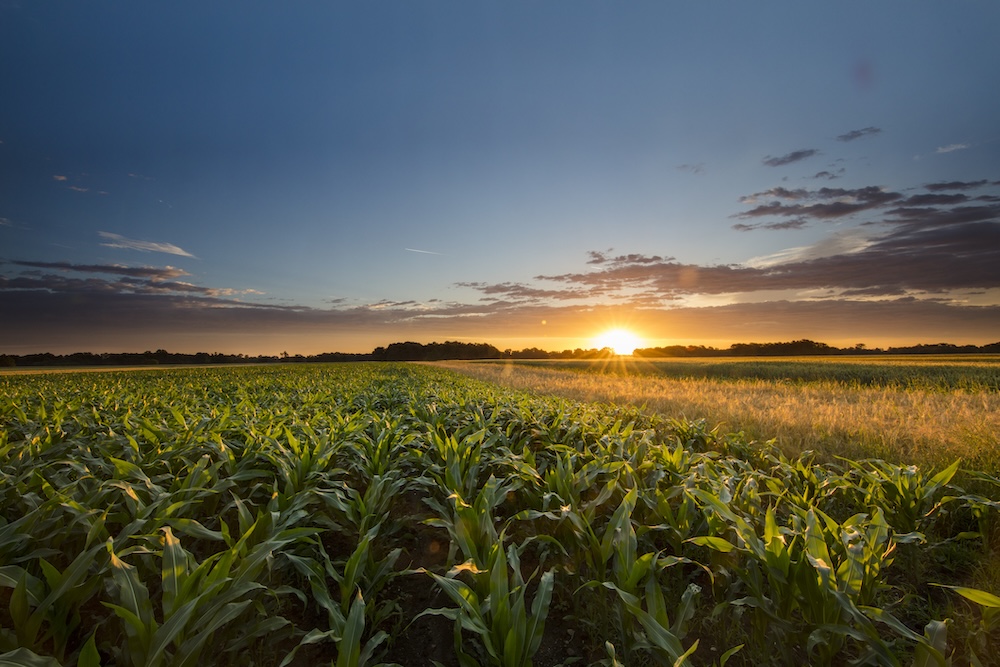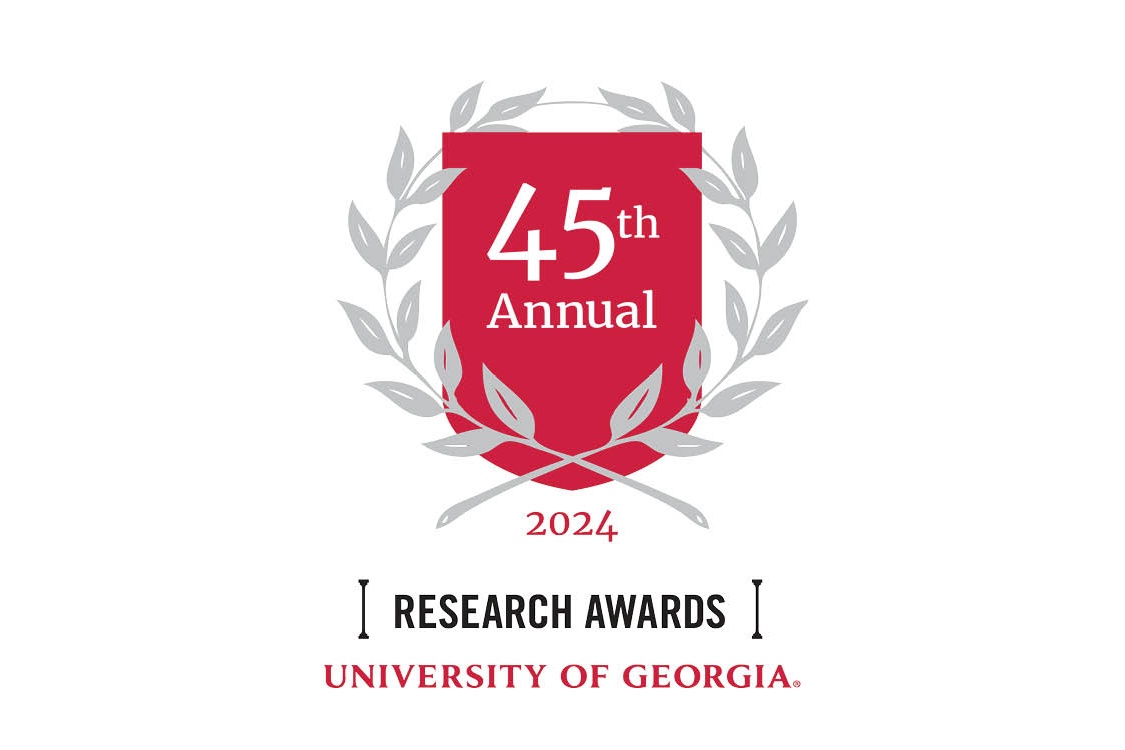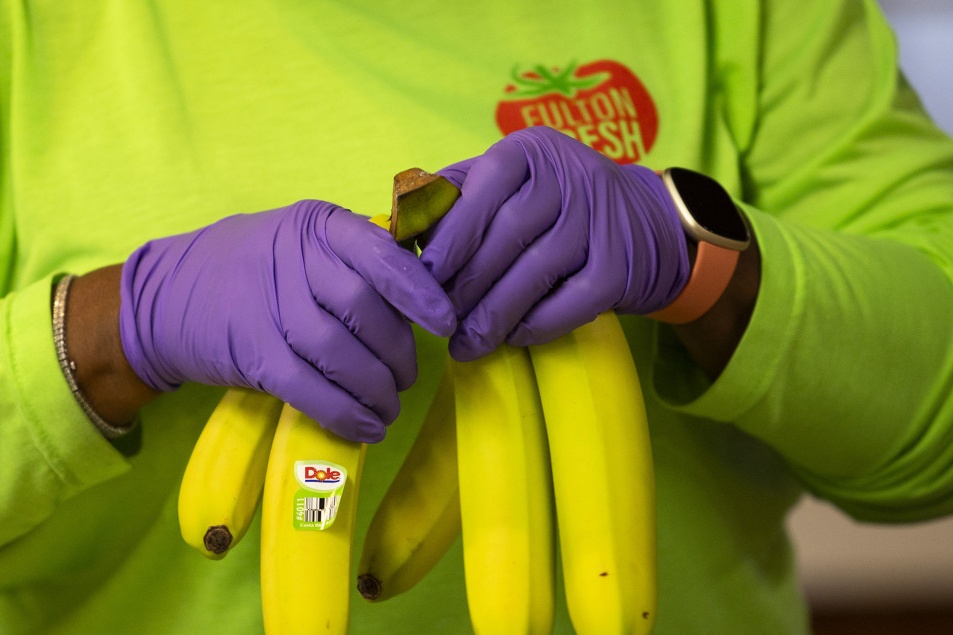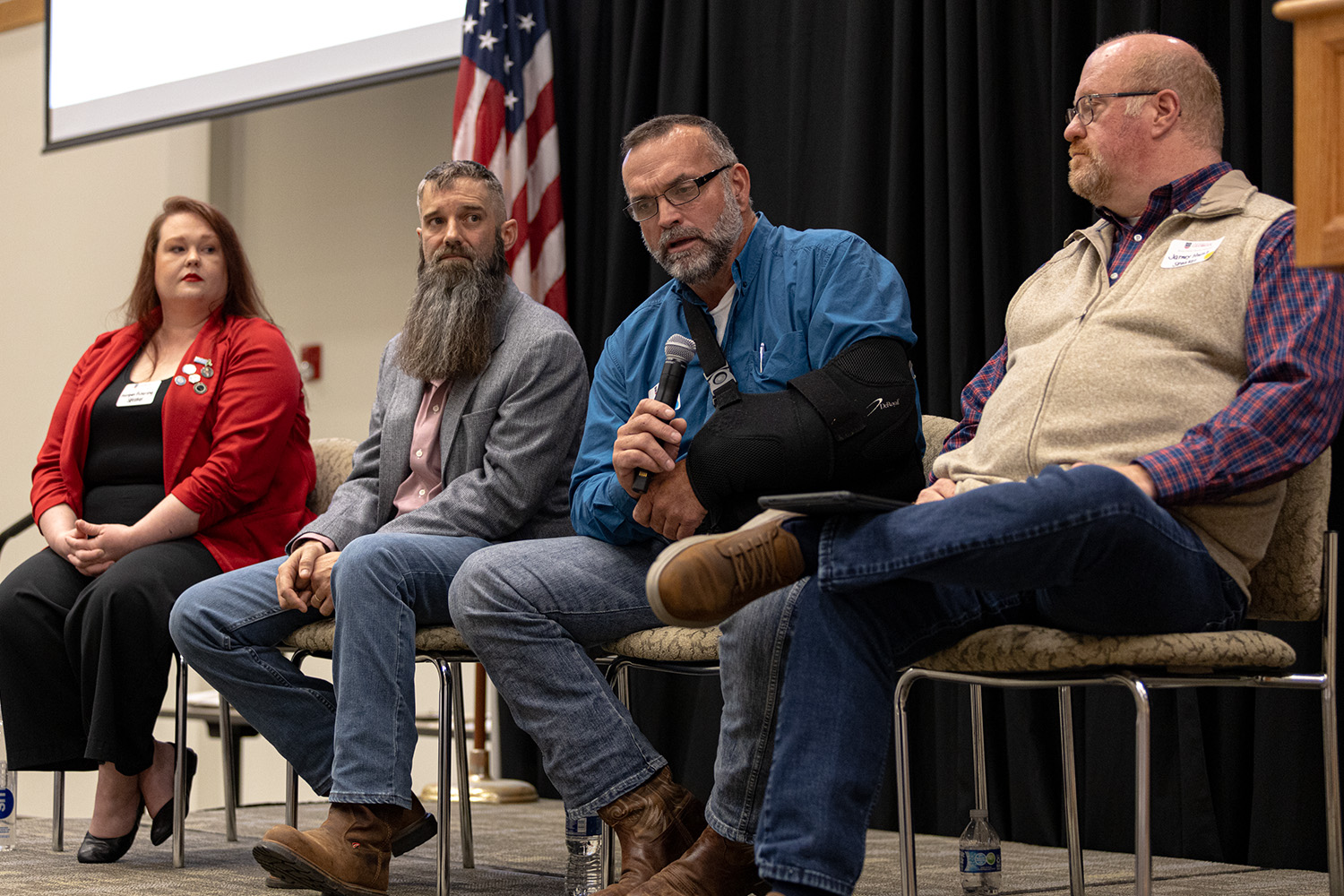To help spark a more substantive conversation about genetically modified crops, the Sustainable Food Systems Initiative hosted a panel discussion on Sept. 26 after the public film screening of “Food Evolution,” a 2016 documentary on the issues surrounding GMOs and their promise for building a more food-secure world. The Sustainable Food Systems Initiative is a faculty group from across the University of Georgia campus that focuses on inter-disciplinary solutions to food system problems. Faculty from the College of Agricultural and Environmental Sciences (CAES) led this initiative.
The panel included UGA agricultural communications professor Abigail Borron, Wayne Parrott of the UGA Institute of Plant Breeding, Genetics and Genomics, Pablo Lapegna, UGA sociology professor and author of Soybeans and Power: Genetically Modified Crops, Environmental Politics and Social Movements in Argentina and UGA CAES sustainable agriculture coordinator Julia Gaskin.
Lapegna, who has studied the social and environmental impacts of genetically modified crops, pointed out it’s not just the safety of genetically modified crops that should be studied. GMO technology, or the commercialization of GMO crops, can have impacts beyond what can be measured by life sciences.
“This idea that there is a scientific consensus on GM crops is simply not true,” Lapegna said. “It’s true if you’re just talking about the life sciences, in the United States. In many parts of the world there are people who engaged in the life sciences and have different views. Science is not only life sciences. When you release GM crops into the environment, you cannot ignore the social sciences or people in the life sciences who have alternate views [of] GMOs.”
Parrott, who has made a name for himself as an advocate of genetically modified organisms, agreed that scientists have ignored the social impact of genetically modified crops as they were released but argued that scientists from across the globe have established their safety.
“More than 63 national and international health agencies agree that these things are safe,” Parrott said. “All of the academies of sciences on Earth and the majority of geneticists agree that they’re safe. There are some non-geneticists who disagree with them. Rosanne Barr disagrees with them but this is as close a consensus in science as anything.”
UGA Cooperative Extension specialist and CAES sustainable agriculture coordinator Julia Gaskin —a soil scientist who advocates for no-till or low-till agriculture — works with both organic and conventional farmers. She told the panel’s audience that the debate over GM crops needs to move beyond dogma and focus on the fact that genetic engineering is one tool that farmers have to produce more sustainable produce.
“The film made the point that this is a tool, and a tool can’t really be good or bad,” Gaskin said. “It’s all in how you use it … Really what we need to be doing is using more cover crops and other types of systems to help us deal with weeds. I will tell you it’s not an easy battle … so I feel like we need to use the tools that we have to suit particular situations.”
This was the first time CAES has participated in this type of multifaceted public discussion on genetically engineered crops. The event attracted about 100 students and faculty members from across the UGA campus and the community. More than 300 people watched at least some part of the panel discussion via Facebook live feed.
To watch the entire panel discussion visit the videos tab at www.facebook.com/UGACAESstudents/. To find out more about the documentary Food Evolution visit www.foodevolutionmovie.com.






